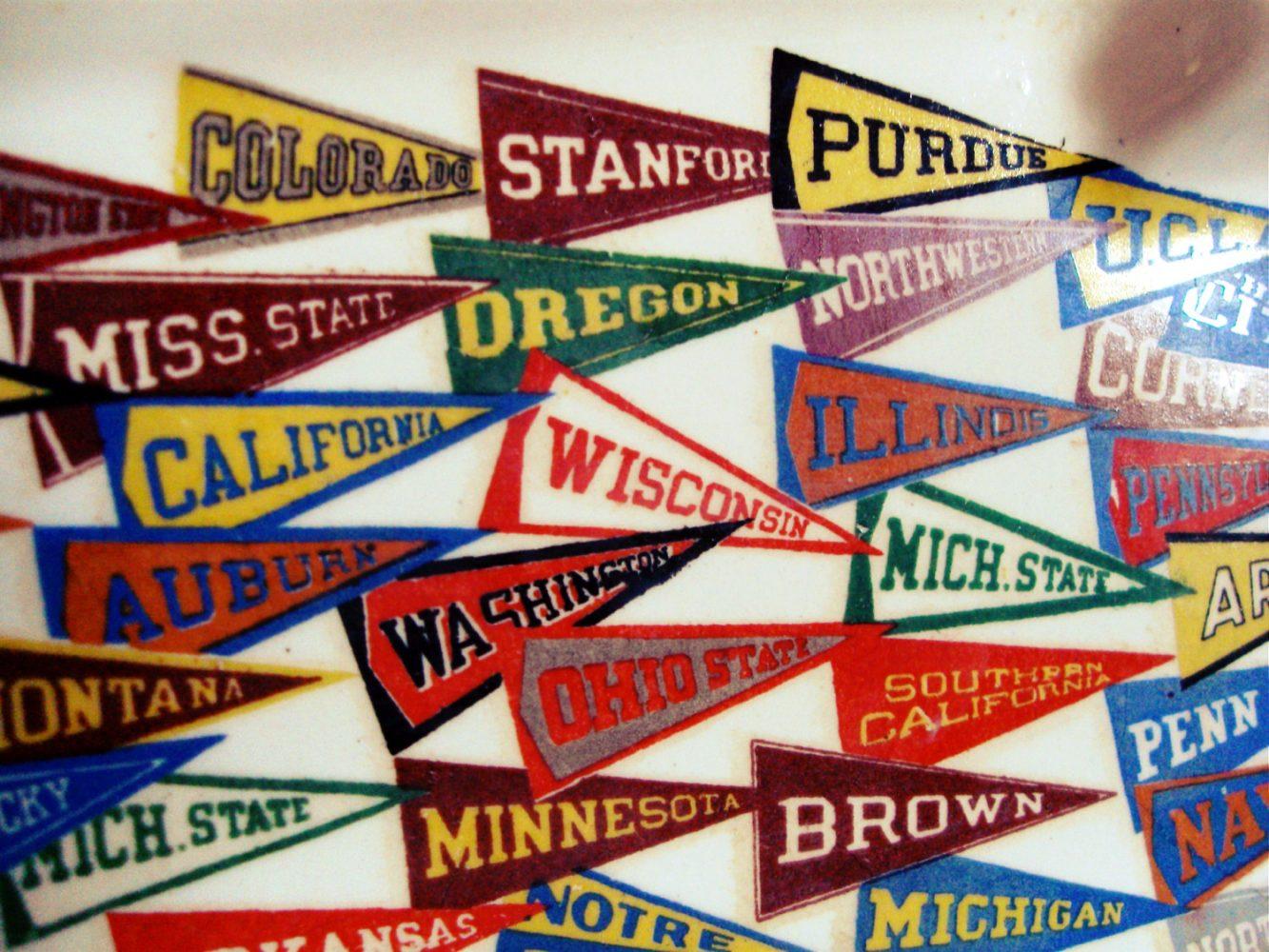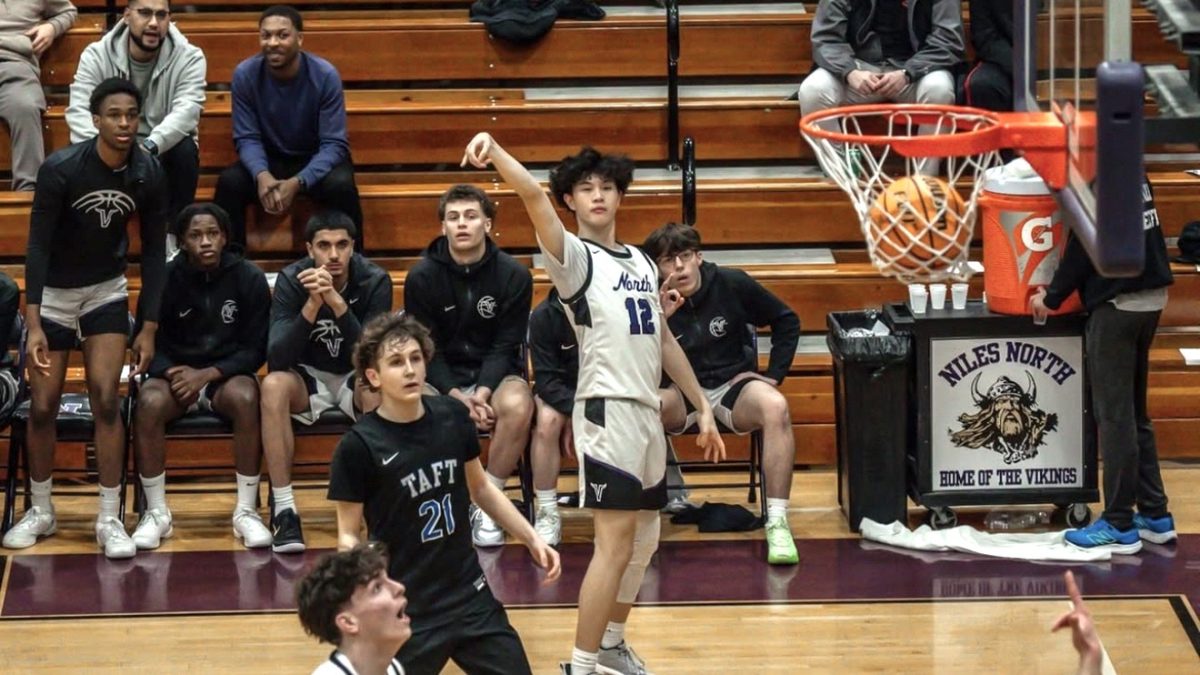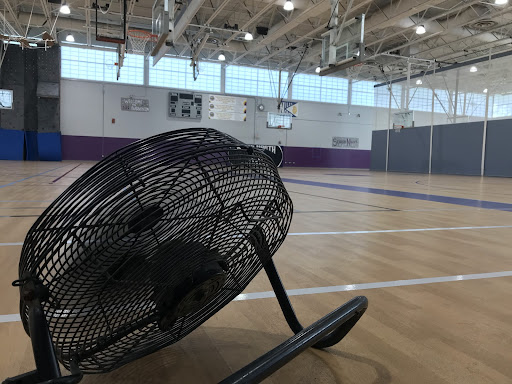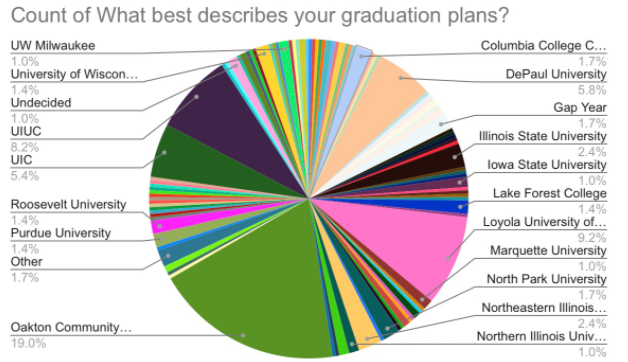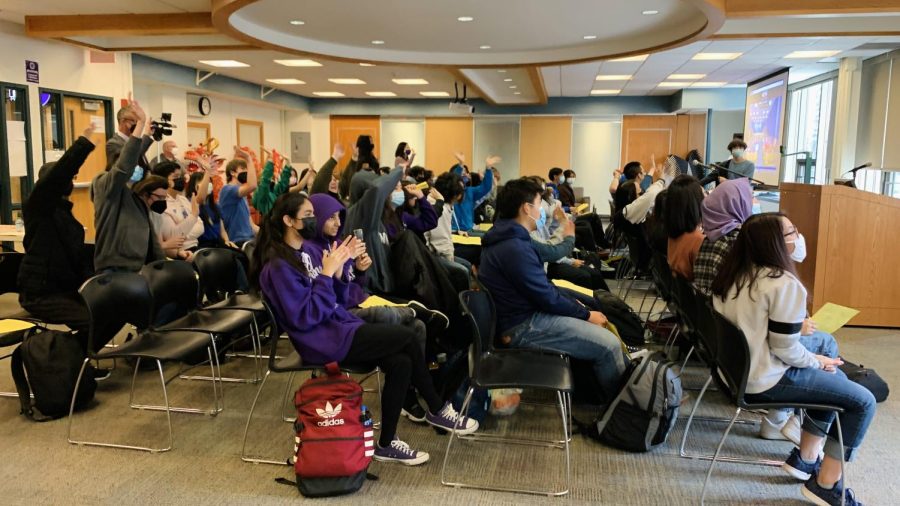On August 27, Niles North held the annual District 219 senior night, a night for seniors and their parents to learn more about the fast-approaching college process. The discussion was led by district college and career counselor Jerry Pope, North college and career counselor Allegra Giulietii-Schmitt and West college and career counselor Dan Gin. If you weren’t able to attend or if you need a refresher on the loads of information presented, this post is your one-stop source for everything related to the college process.
“When we talk about being college ready, we talk about being life ready,” Pope said. There is a huge need for you up-and-coming, more marketable college graduates, so where do you start?
First of all, it’s extremely important to be an informed customer. “It’s okay to be nervous, but there’s a lot of misinformation out there,” Pope said. The first step towards being an informed customer is to decide what you’re looking for in a school. From there, you can research your prospective schools and expand your college options.
Deciding where to apply is an ongoing sorting and selecting process. The best final list should include a combination of a “reach school”, “possible schools”, “probable/likely admits” and a “financial safety”, all of which you would be happy to attend.
A “reach school” is like a dream school, whether it be because your test scores and GPA are lower than their averages or because of their high selectivity. “Possible schools” are those where you closely meet their academic expectations but where they receive more applicants than they can admit. Since you can’t really call anything a guaranteed “safety”, “probable/likely admits” are schools where your chances of admission seem to stack up very well. Last but not least, a “financial safety” is one that you and your family would definitely be able to afford.
“At the end, even if it is your only option, it should be an option that you’re happy and excited to attend,” Giulietti-Schmitt said.
Once you’ve finalized the list of schools you’ll be applying to, there are tons of secrets of college admissions that can ultimately help to make you or break you. One of the biggest things that colleges look for is demonstrated interest. Colleges want students who want them.
Not to mention, your application essays and personal statements need to be written by you. There’s a company out there sending letters to students saying they’ll basically write your essays for you for a small fee. While that does sound like an attractive offer, don’t buy into it. College admissions know when they’re reading an essay not written by a 17/18 year old.
Your social media accounts are also an important factor. If you wouldn’t be comfortable with your parents and teachers seeing it, don’t post it online. Also, make sure you have a proper email address. If a college receives an application from the email address “ieatroadkill@gmail.com”, they probably won’t accept you.
If you’re still undecided about your major, that’s totally okay. In fact, it’s the most popular major that students go into college with. Four out of five students who declare majors even end up changing it when they get to college.
If you’re worried about going to college because of financial barriers, stop worrying. There’s a very good chance that you’ll find a college that’s a good fit financially for you and your family. College graduates earn an average of $1.4 million more in their lifetime and the average amount of loans that need to be taken out are only $23,000, making the extra money spent on obtaining a college degree definitely worth it.
“Your education will never ever depreciate,” Pope said. “It only grows in value.”
Filling out the FAFSA form in January will tell you how much federal financial aid you’ll be eligible to receive. Even if you don’t think your family is eligible for federal aid, it’s still extremely important to fill out since many colleges now use it in scholarship consideration. Not to mention, almost half of the families who don’t fill it out because they think they won’t qualify for any money actually would have qualified had they filled it out.
Also, the net price calculator is an extremely useful financial aid tool that lets you put in your family’s tax return from last year and estimates how much going to a specific college is going to cost you.
The next step is visiting college campuses and talking with their representatives, whether that be at the campus itself or here at Niles North.
After you’ve researched the school and decided that it’s one you’d like to see in person, register for a campus visit. While you’re on campus, take a tour, talk to students, sit in on a class and most importantly, ask questions. After you get back, don’t be afraid to reflect on the visit, journal your impressions, discuss the visit with your counselor, or send a thank you letter.
The College Resource Center (room 1255) here at North hosts college visits all the time. Pretty much every day, you can find a representative from a university in there talking to students. These visits from college representatives provide you with information about the college/university and allows you the opportunity to ask questions and learn about the campus and community. The visit schedule is posted on Naviance and on the TV screens in the hallways.
Both of these types of visits show some serious demonstrated interest, and first impressions really do matter.
The last step before sending off your applications is deciding when to apply. Here are your time frame options:
- Early decision I: Apply in fall, receive decision in early winter, binding commitment to attend if admitted
- Early decision II: Apply in early winter, receive decision in late winter, binding commitment to attend if admitted
- Priority: Apply in fall, receive decision in winter, not a binding commitment, gives you an advantage to scholarships and honors consideration when space is limited
- Regular admission: Apply in winter through early spring, receive decision by late spring, not a binding commitment, scholarships may not be left
Once you know where and when you’re applying, the only thing left is to send it all off. What is needed for an application? I’m glad you asked. The application itself is needed, whether that be through Common App or the college’s website itself. You also need your official test score reports from the testing agency directly, your transcript, and if essays, letters of recommendation, an interview, a portfolio, or an application fee is required then you will need that too.
Your ACT scores have to be sent to colleges directly from the ACT website. If you took the test multiple times, send all your scores. If one of them isn’t as good of a score as the others, don’t worry about it affecting your admission decision. Colleges always take the highest score and ignore the lowest one.
“It’s called the office of admissions, not the office of denial,” Gin said.
If your school is not on Common App, you will need to send your transcript through Parchment. Otherwise, your counselor will upload it for you. Some schools do a self-reported transcript in which you have to tell them your grades yourself. Honesty is the best policy when it comes to that.
When it comes to letters of recommendation, you should ask the teachers who know you best as a learner in their class. It doesn’t have to be a class that you got an A in, as long as the teacher saw that you were trying. It’s best if the teachers are ones you had junior year. It’s okay to have one from sophomore year, but freshman year teachers are a no. If you’re applying early decision or priority, your senior year teachers don’t know you well enough yet to write you a letter of recommendation.
Don’t fall victim to senioritis. Colleges will look at your senior year courses and grades, and they may make changes to their decision based on your senior year performance. “The best way to avoid senioritis is first, have fun!” Gin said. “Get sleep, manage your stress levels, eat healthy and stay organized.”
This whole college process should be mutual between you and your parents. It’s important to keep them happy, but it’s more important to keep yourself happy. The college process can be a bumpy ride, but in the end, it’s all worth it.
“Enjoy the ride, take advantage of all the opportunities and take lots of pictures,” Pope said.
Just to summarize, here’s a checklist for your fall semester:
- Refine your list of schools to which you’ll be applying
- Meet with college representatives in the College Resource Center (room 1255)
- Set up an individual appointment with your counselor and with Giulietti-Schmitt
- Retake the ACT/SAT (if necessary)
- Visit college campuses
- Update your resume
- Complete online applications
Niles North will be holding a self-reported transcript and application workshop on September 5 and October 7, coffee with the counselors on September 16, a “complete your application” party on October 18, a financial aid night on January 7 and a FAFSA completion workshop on January 10.


